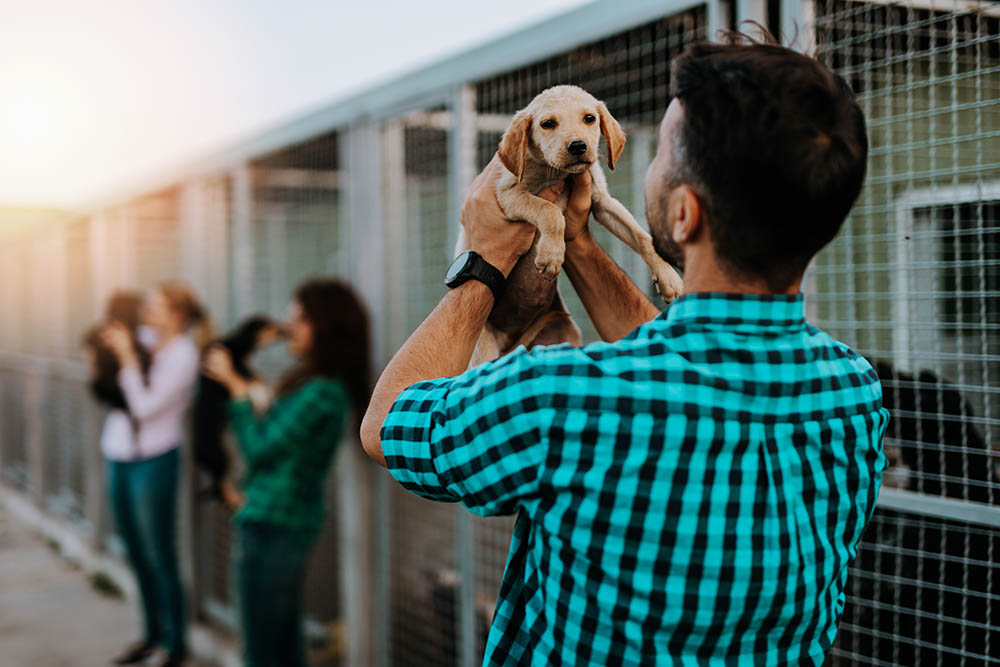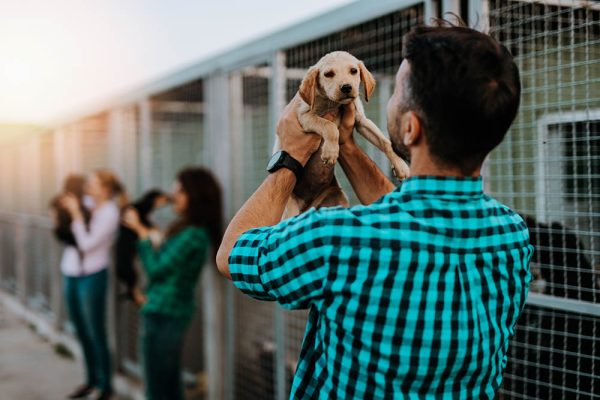Click to Skip Ahead
If you have decided that you are ready to bring a dog into your life, the next question is where you’re going to get your newest family member. You can either buy a dog from a private seller or breeder, or you can adopt from one of the marvelous rescues and shelters across the nation. But which option is better?
Ultimately, it depends on exactly what you’re looking for and what your goals are as a pet owner. In this article, we’re going to explore all of the positives and negatives of adoption and buying from a breeder. Hopefully, it helps you make the best decision for your individual scenario.
Adopting a Dog
Adopting a dog is a huge decision! It can bring about such excitement and joy. After all, you’re taking a dog that someone else didn’t want, couldn’t care for, or that was abandoned, and you’re giving them a chance at a new life. You can absolutely find a dog at any stage, any breed, or any personality type.
There are rescues and shelters in every state. There are even websites dedicated to condensing all animals that need a new home into one spot so that you can easily view them and get in touch with rescues. Each facility will be run slightly differently.
They will have different requirements for adoption and certain criteria that you have to meet. It might seem like some facilities require an exponential amount of information. However, the reality is that it is the mission of these facilities to ensure the adoption is successful.
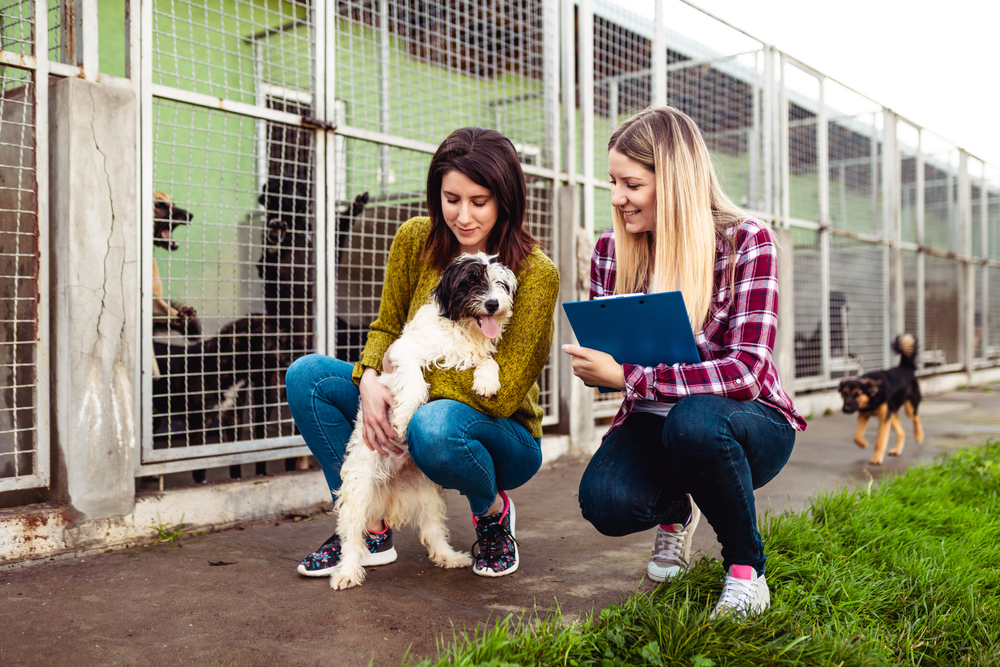
Pros
There are tons of positive things about adopting a dog. Here are the most obvious ones.
1. You Get to Save a Life
The most obvious thing you’ve probably already considered is that when you’re adopting a dog, you’re giving that animal a second chance. It’s most likely that the dog has been through some type of devastating situation where it has lost its family in one form or another.
This can have lasting psychological impact on a dog. You get to swoop in, be the hero, and give them all of the love and attention that they deserve. You also can help reduce the homeless animal population and not contribute to backyard breeding and other dangerous situations.
2. There Are a Lot of Facilities and Dogs to Choose From
The first step in adoption is picking the facility you would like to adopt from. You don’t have to make this decision right away. Many people do a lot of research and even look at available dogs before they contact a facility.
You can make your selection based on a few things. First of all, the facility you choose should have an outstanding reputation. They should be known for, proper treatment of animals, successful adoptions, impeccable kennel care, and thorough procedures.
If you’re looking for a specific type of dog, there are plenty of shelters and rescues you can look at. A lot of the dogs are mixed breeds, but there are some purebred dogs, especially at breed-specific rescues. So, you don’t always have to go through a breeder to find a particular dog.

3. You Can Get a Dog of a Certain Age
There are tons of reasons people choose a specific life stage. For example, someone might want a dog who’s already potty trained because they don’t want to deal with that part. Therefore, they would pick an older puppy or adult dog that was already trained.
Some people have a special affinity for senior animals. They would love to provide a space for the animal to live out their golden years. Some people want puppies because the animal is capable of growing with a family, acclimating to their lifestyle and adjusting accordingly. There is no wrong answer.
4. You Can Attend Meet and Greets
Most reputable shelters will want to ensure proper placement. That is why meet and greets are so vital. Often, shelters will have you bring in any children or other pets in the home. In a controlled setting, these animals or the dog and children will be introduced to one another.
Under close observation, you can assess the dog’s behavior. Do they seem comfortable? Do they draw their ears back or show any signs of fear or aggression? Do they seem nervous and relaxed? Do they seem eager and ready to play? You can really see if the dog will mesh with your family.
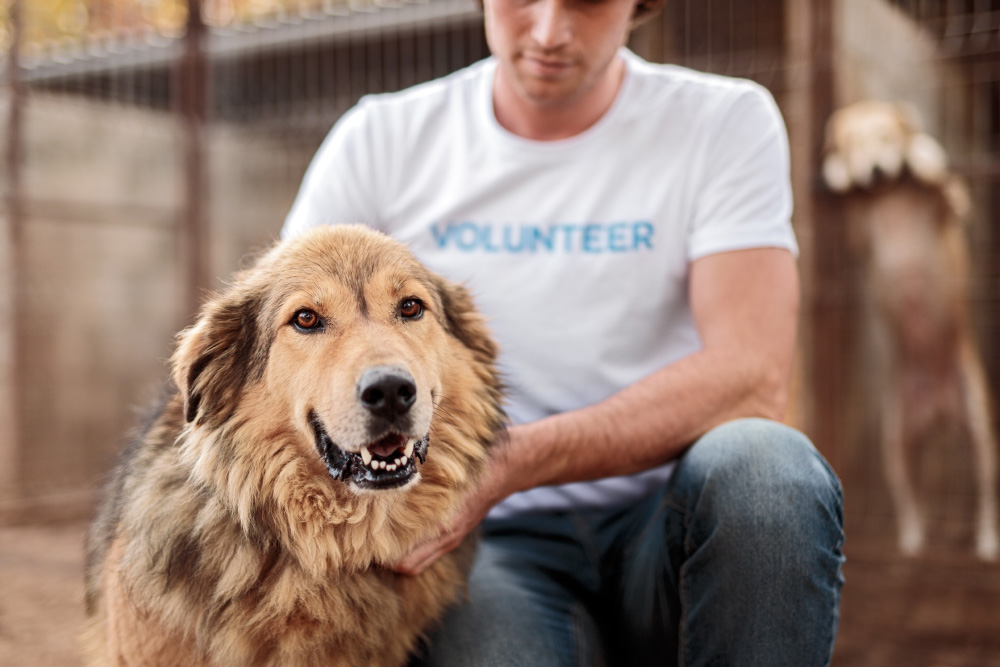
5. Some Adoption Facilities Perform Home Inspections
An employee from a rescue or shelter may visit your home to ensure that you are not fibbing about the information you provided on the application. If a dog, for example, requires a fenced-in backyard because they are a known runner, you might claim you have a proper space, even if you don’t, so they want to make sure that you have everything you need to take care of the dog.
This may seem like a hassle, but ultimately it’s for the welfare of the dog. They don’t want to see the dog end up in the shelter again, so they want to make sure that you can provide the best life possible for them.
Sometimes, shelters simply require pictures or other documentation that you can provide, showing you can accommodate. It will be up to the individual facility, and you should comply with the individual rules.
6. Vet Care Is Usually Complete
When you get a dog from a rescue or shelter, the vet has likely looked them up one side and down the other. They would have had at lease once vaccination, and you should be made aware when the next vaccinations are due. You will be aware of any health conditions that require ongoing medications and reasons for potentially more frequent veterinary visits, and you can learn about their individual quirks. This is usually included in the overall adoption cost.
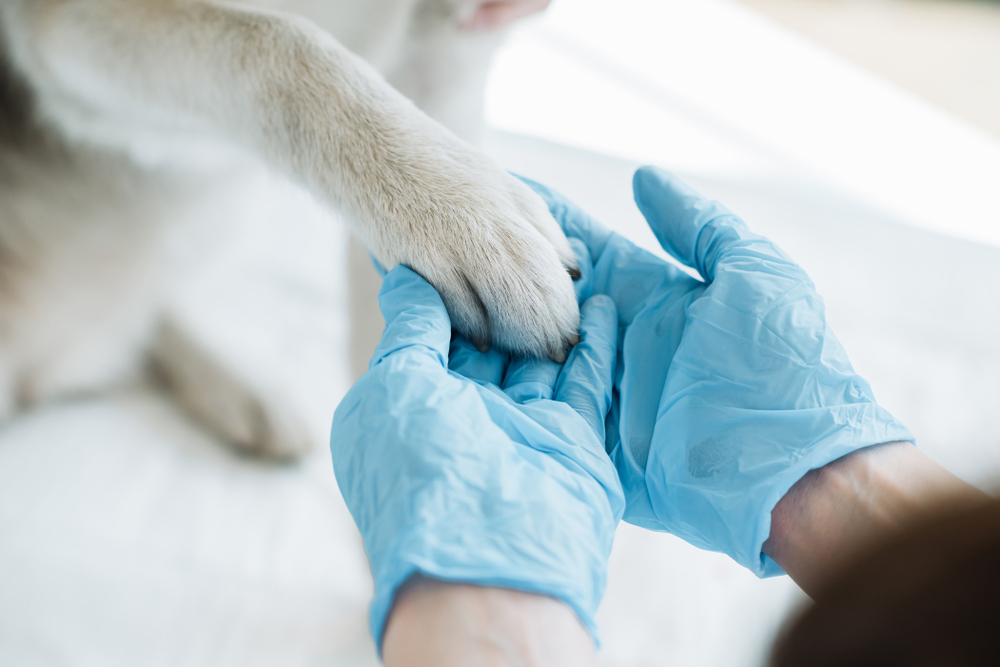
7. Spay and Neuter Is Included in Adoption
Spaying and neutering can cost quite a pretty penny these days. When you buy a puppy from a breeder, you will eventually have to get the dog fixed.
However, if you buy from a rescue or shelter, you won’t have that problem. Every dog that leaves the shelter has been spayed or neutered unless there is a valid, legitimate reason why it cannot be done.
8.You Save Money
Often, buying a healthy dog from an animal shelter or rescue is cheaper than purchasing from a breeder. As mentioned, most of the dogs in shelters are mixed breed dogs, so they don’t cost as much as a purebred pup. There are purebred pups in some shelters and rescues, but they are usually cheaper than buying from a breeder since they are usually adults or senior dogs.
Cons
Adoption is, of course, a very advised method of obtaining a dog, but that doesn’t always mean it’s the right option for everyone. Adopting from a rescue or shelter can be slightly negative.
1. Shelters Might Have Limited Information
Sometimes, with strays, it’s very hard for a rescue or shelter to get an accurate story of where the dog came from. While this doesn’t always create problems, the lack of information can affect compatibility and other factors when they are looking for a family. If a rescuer shelter is unaware of certain things, they might be placed with homes that are unsuitable for them.
One-on-one time and thorough behavioral testing could alleviate a lot of these issues. It is vital for the facility to get to know the animal for proper placement. If you feel like the facility that you’re interested in isn’t doing that, we recommend looking elsewhere.

2. Some Shelter Dogs Aren’t as Adoptable
Some dogs in shelters may not seem as adoptable, due to age, disability, personality, or other advanced care needs. But we strongly encourage you to take a look at less adoptable pets. Sometimes, you’ll be surprised, and a dog might be one in a lifetime.
So, remember to keep an open mind unless you absolutely have to have a specific age for a vital reason. For example, you might not want to get a puppy or senior if you’re concerned about a bulldozer of a dog that already lives with you. After all, they might get too rough.
3. The Dog’s Personality May Be Different at Home Than at the Meet-and-Greet
Meet and greets are great for getting to know dogs before you adopt them. But on the flipside, once you get the dog home, an animal that you have may not jive very well with the dog you’ve just adopted. You might have a dog that is used to being the center of attention, not really loving the idea of having a new brother or sister.
Also, if you’ve never brought another dog into the home, you might be unaware of some interesting issues your own dog might have, such as dog aggression due to territory or other disputes.
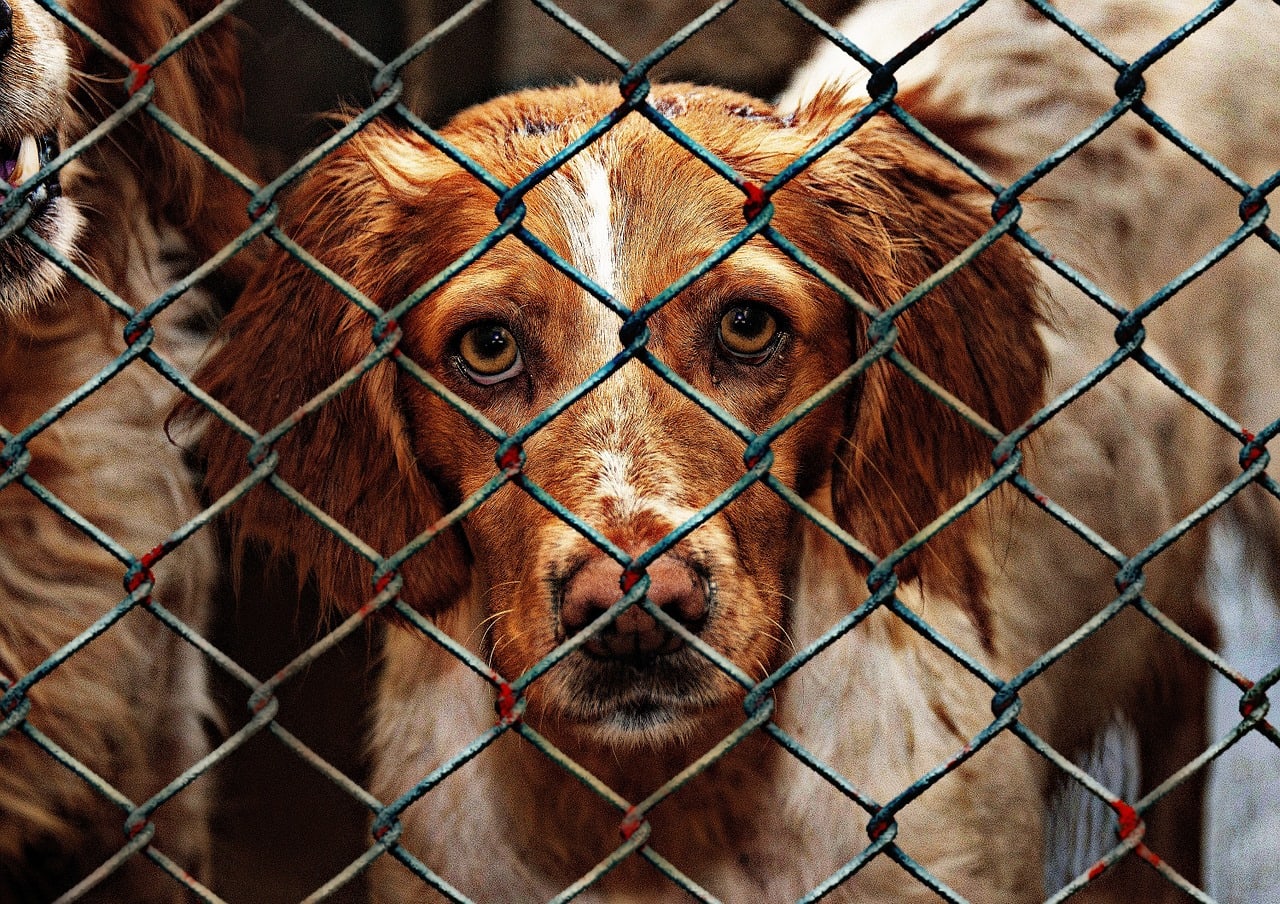
4. Some Dogs Have a Traumatic Past
We think that understanding a dog’s background is very important. It can really set the stage and expectations for the relationship experience. For example, suppose you have a dog that has a history of previous neglect and abuse.
In that case, they might have nervous tendencies, destructive behaviors, social Interaction issues, and a laundry list of other problems. These dogs typically require a very patient and knowledgeable owner who is willing to work with them at every return.
5. Shelters May Not Do Proper Testing
As we mentioned a little earlier in the article, some rescues and shelters need more time or resources to do proper testing on animals that come into the shelter. This can lead to a lot of situations where a dog is not fully healthy, and the shelter doesn’t know it.
For example, you may get the dog home to discover that the dog has a parasite, such as heartworms, and requires a bit more care and money than you originally anticipated. Shelter dogs can have various illnesses that can go undetected even with proper testing, so just be prepared for that possibility.
Buying a Dog from a Breeder
If you choose to buy a dog from a breeder, you are likely getting an adorable little puppy of a very specific breed to bring home. You have all sorts of different breeds to choose from, including many hybridized or “designer” versions of the dogs we know and love. (Keep in mind that designer dogs are still mixed breed dogs, not purebred, but they are bred intentionally to have more desirable traits.)
When it comes to buying a specific breed, there are several things you will have to ensure before bringing your puppy home. Even the buying process can be quite daunting, as finding a reputable breeder can be a challenge sometimes. Here are some pros and cons of buying a dog from a breeder.
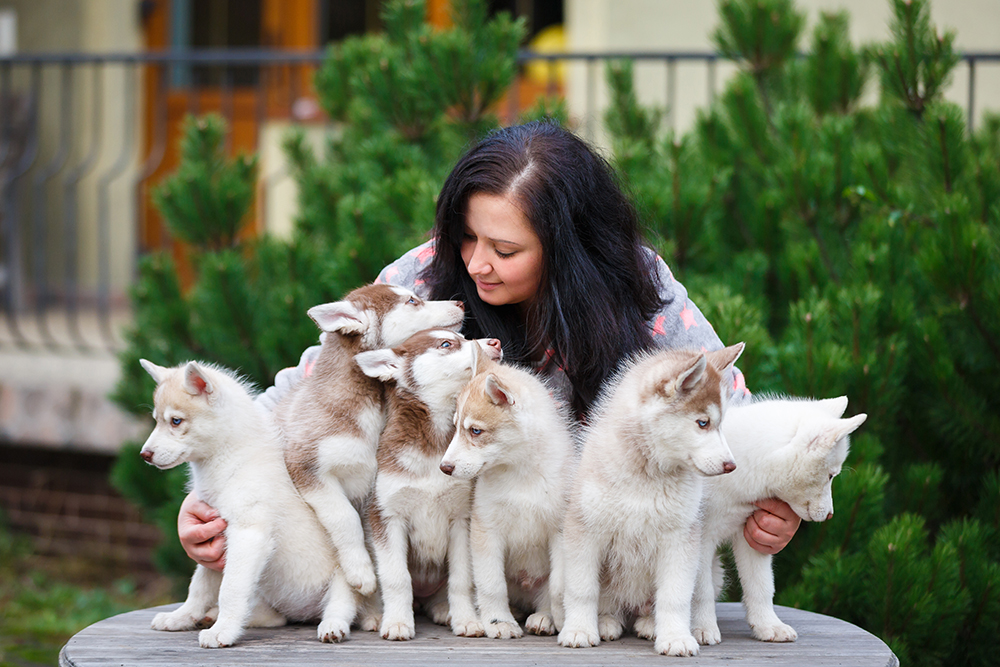
Pros
Let’s start out with some good things about buying from a breeder.
1. More Information Is Known About the Dogs
If you buy a dog from a responsible breeder, their animals would have undergone rigorous testing to ensure the best genetics possible. This will improve overall health, temperament, and prime physical appearance. Most breeders have devoted their lives to diligently perfecting a particular breed.
Every dog will be different, but certain breed standards remain pretty much the same. It is important to understand that personality can fluctuate, but when you learn about a breed, what you see is usually what you get. With mixed breeds or shelter dogs, sometimes this can be a gamble.
2. Breeders Are Very Concerned with the Health and Welfare of Their Dogs
This is not to say that shelters aren’t. But breeders often have more resources and time in order to ensure that the dogs are healthy.
Ethical breeders take the health of sires and dames very seriously. They go through rigorous testing to ensure that the parents are suitable for breeding and make sure that puppies are in good health before sending them home. They can also breed out to the best of their ability some genetic conditions that certain breeds are prone to.
Many breeders also put a clause in place that makes you agree to getting your dog neutered on time. This would promote a healthy experience and prevent unwanted pregnancy or backyard breeding situations.

3. Breeders Have Puppy Contracts
Puppy contracts are a fantastic legal binding document breeders have put in place to ensure the success of their puppies going to good homes. Many puppy contracts have different elements to them, but most generally, they are put in place to ensure that you will get the dog back to the breeder in the event that you can no longer care for them.
This was an element that breeders had in their control to ensure that their puppies only went to the best homes. Instead of one of the members of the litter falling homeless later, it provided a safety net and an easy out for pet parents who got in a little bit over their head.
Keep in mind that puppy contracts are legally binding documents, and you are required by law to give the animal back instead of rehoming them yourself. Once you give the animal back to the breeder, they will look for a suitable home for them instead. Your breeder may also provide a health gaurantee.
4. The Dog Can Better Acclimate to Your Lifestyle
It’s easier to buy a puppy and have it grow into your family than it sometimes is to convince a shelter dog to trust you. While this isn’t true in every scenario, it certainly is something to consider. Your dog can adjust to your other pets, children, company, and activities more easily if they grow up around them rather than being brought into the home at an older age and with bad past experiences. Puppies still require socialization and training, but they are more accepting of new experiences up until the age of 14 weeks.

5. Good Breeders Are Licensed and Very Knowledgeable
Ideally, the breeder you choose should be licensed by the American Kennel Club or a certain dog breed organization. This will not be the case for mixed breed breeders, since they are not a breed recognized by the American Kennel Club. Every good breeder should also be fiercely knowledgeable about the breed that they have. They should be able to answer any and all questions about the breed and the puppies, helping you further decide if this type of dog is right for you.
6.You Can Do Meet and Greets
Just like with dogs from a shelter, many breeders offer the opportunity for meet and greets. You can visit the breeder in person and get to know the puppies and parents before you decide which one to choose.

7. You Can Get Exactly the Dog You Want
The last pro about buying from a breeder is that you get exactly the dog you want, whether it be a specific breed, sex, or color of the dog. You’re not guaranteed to get a certain breed at a cheaper price just by going to a shelter, which is why many people seek out breeders in the first place.
Cons
Now that you’ve learned all the positives, here are some negative things about buying from a breeder.
1. Some Breeders Aren’t Reputable or Licensed
Choosing a reputable breeder is the most important part of getting a purebred dog. Often, and unfortunately, many breeders cut corners, practice inhumane breeding, and don’t ensure proper vetting before a dog goes to their new prospective owner.
Backyard breeding is an increasing problem as the value of dogs continues to rise. It is a very sad thing to think about the financial benefit more than the well-being of the animal, but people certainly do.
Suppose you are speaking to a breeder, and they seem reluctant to give you specific information, show pictures, allow meet and greets, or seem relatively pushy in the sale. In that case, we recommend staying away from the situation.

2. Breeders Require Deposits and May Have Waitlists
Sometimes breeders have a high demand for a particular type of puppy. If that’s the case, you may be put on a waitlist until the breeder has a puppy available for you. When you purchase from a breeder and get put on a waitlist (or even if you don’t) you need to expect to pay a deposit. Often, breeders use these deposits to secure your dog. For example, if there’s a litter of eight puppies, and there’s a lot of interest, you can claim the puppy that you want without someone getting in before you.
We greatly encourage you to go meet the puppies, or at least speak with the breeder, before you make this kind of decision. Be aware of scams, where you will never see the dog because they don’t exist. Scammers can post pictures of cute puppies and get payment from inexperienced dog owners.
3. Purebred Dogs Have Extremely High Price Tags
Buying from breeders can be downright expensive! Dog prices seem to keep rising, and it’s often hard for people to save up the money. If you want a very sought-after or rare breed, you can expect to pay a lot of money, usually several thousand dollars. This money does help ensure that you get a healthy pup, but it’s still prohibitively expensive for some people. Keep in mind the costs will keep rolling in when you take the puppy home, so never blow your budget on the purchase cost.

4. You May Have to Travel
Every city tends to have at least one animal shelter or rescue nearby, but if you want a specific type of dog from a breeder, you may have to travel quite a way to get the dog you want. This adds a further expense to purchasing from a breeder, and you also have to consider how you’re going to get the dog back home.
5. You Have to Get a Puppy
We know this is probably what you want if you’re considering buying from a breeder, but hear us out. If you get a puppy, you have to be able to train and socialize that puppy, including housebreaking them. You also have to go through their chewing phase, and pay for spay or neuter surgery as well, as many breeders don’t provide this.
So, you may have to deal with undesirable behaviors for a little while until your puppy is trained or grows into an adult. Some breeders will adopt out adult dogs that they no longer use for breeding though. These dogs are usually well-trained and socialized, especially if they have been in the show ring.

Adopting vs Buying a Dog: Tips and Things to Consider
Learn About the Breed
Before you even look for a breeder or consider adopting, you need to decide what kind of dog you’re interested in. There are a ton of fantastic options, but there are likely a few that are already at your heartstrings or have your attention. Learning about the different breeds is incredibly important.
Anytime you’re interested in a dog, look at their overall personality to see if it would be a true match. It’s easy to think a dog is adorable, but looks aren’t important if the dog has a personality that doesn’t fit with your lifestyle. For example, it’s easy to be smitten with the appearance of an Australian Shepherd, but you may not be able to meet their high energy needs.
Even if you don’t have a particular breed in mind, you still need to have an idea of what kinds of traits you’re looking for. Learn everything that you can about a breed to make sure that they are compatible with other animals in your home, children, and lifestyle. Once you’ve picked the breed, research their common health problems and testing available to prevent these.

Consider Fostering a Dog
Fostering can be a rewarding and enriching experience for a potential dog owner. It can give you a strong foundation to welcome in a dog of your own eventually. You can provide a safe space for shelter dogs while they wait for their forever home, and it can help you decide what kind of dog fits well with your lifestyle.
Plus, you can get used to the general care to see if you have the time, energy, and resources to have a dog at this moment in your life. It is such a wonderful and kind act of service. Many dogs are pushed into kennels, afraid and lonely.
Fostering is a great way to put back into the world and make sure that a dog is completely cared for. Plus, if you get attached to a shelter dog that you’re caring for, you will most likely have the option to adopt them yourself.
In any case, it’s a good trial run that will make or break a situation.
Avoid Buying from Online Marketplaces
Certain sites exist, such as Craigslist or Hoobly, where breeders and private sellers can get sell their dogs. Some are purebreds, and others are just owners who cannot keep their dogs for one reason or another.
While it might seem like a good idea to hop on online and see if you can get the perfect pup for cheap, we urge you to stay off of these kinds of sites. At first glance, it might seem like another way to adopt a dog that doesn’t have a loving family. However, the reality can be much more devastating than that and the dog may actually be unhealthy, stolen, or worse, not real at all, scamming you out of money.

Consider Health Conditions
Sometimes, owners will sell their dogs because they develop health conditions that they do not have the finances or resources to help with. Because of that, they’re often not forthright with a new owner or even the animal shelter or rescue about these conditions.
You might think you’re getting a dog that is in perfect health but have to deal with a very complicated issue right up front because someone isn’t being honest. Not only is this not true and accurate information to you, but it can significantly impact the dog if you bring them home and then can’t care for them either.
Sometimes, health conditions develop that need prompt care, or serious consequences can occur. So, you have to make sure that you’re able to care for any health conditions that might arise. A good breeder or rescue should be able to give you detailed vet records and proof that the dog has been completely cared for to the best of their knowledge and ability.
Consider Behavioral Problems
Sometimes, people get stuck with an animal that they have no idea how to handle. If that is the case, they might not have been trained or socialized properly, creating much more of a headache for you when you take over.
Sometimes certain behavioral issues can be very out of control, and if you aren’t anticipating them, it can directly impact you. You might even meet a dog and at first glance it doesn’t seem like there’s anything to worry about. But issues like separation anxiety come out when you finally leave the house. So, behavioral problems aren’t always so visible right up front and you have to be prepared to deal with that.
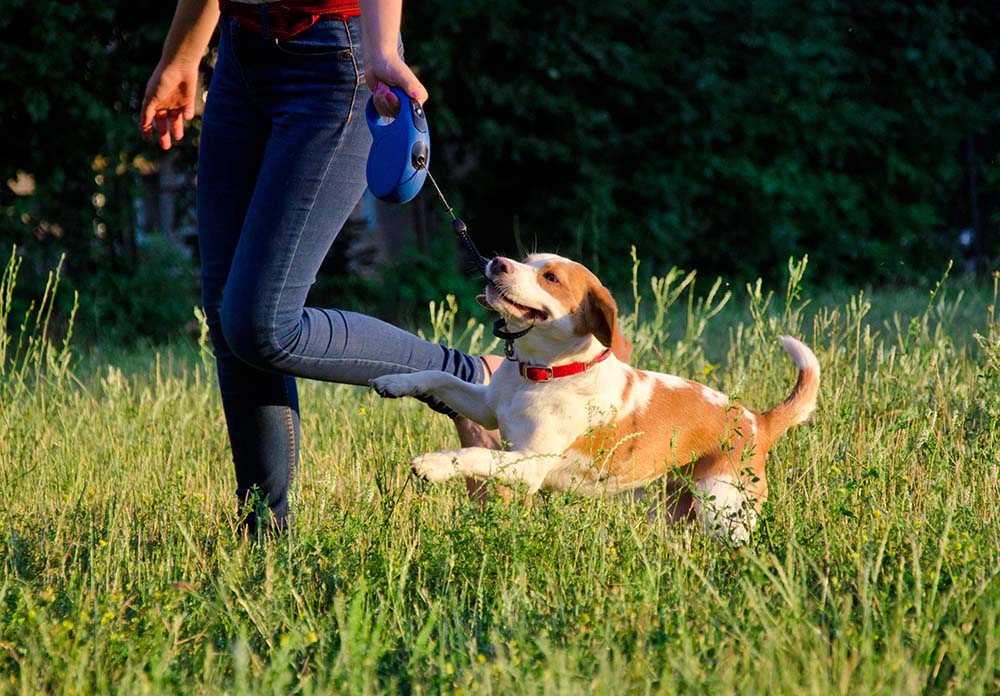
Adopting vs Buying a Dog: Which Should You Choose?
If you have carefully considered the pros and cons mentioned above, it is ultimately up to you whether you decide to adopt or buy a dog from a breeder. There is nothing wrong with either decision as long as you make the most informed decision possible and have the means to care for the dog.
If you choose to adopt, you’ll be saving money, have a wider selection of dogs, and give a dog a second chance at life in a loving home. If you buy from a breeder, you can get exactly the dog you want, the dog may have a more desirable temperament, and you’ll get some health guarantees.
Ultimately though, you just want to make sure that you can give a dog the best life possible before bringing them home.
Conclusion
Now you understand a little more about the differences between buying versus adopting a dog. Hopefully it helps you break down the two options to choose the one that will work best for you. Keep in mind that there is no wrong answer here, but there are ways that both can be positive or negative.
Remember to be very selective about the breeder or facility you choose. Get as much information on the particular dog and the breed overall as you can before committing. As long as you cross your t’s and dot your i’s, you should wind up with a phenomenal dog that you can share your life with for years to come!
Featured Image Credit: hedgehog94, Shutterstock

